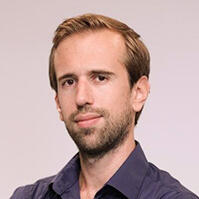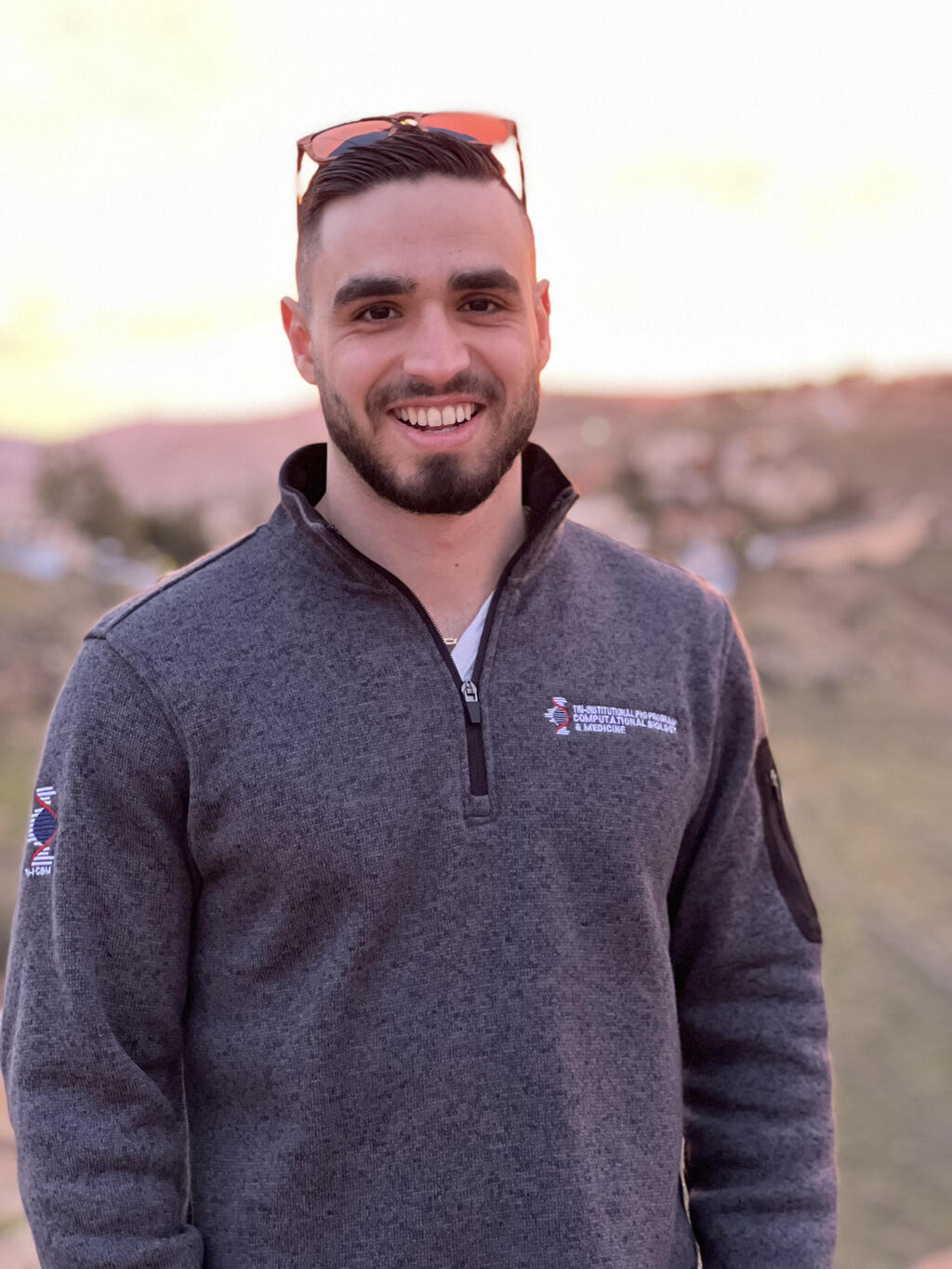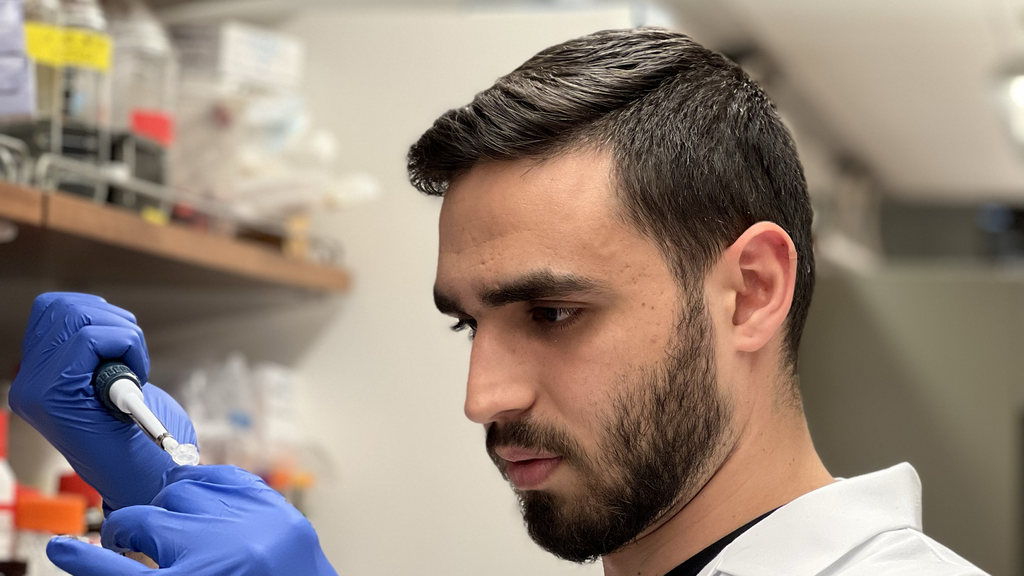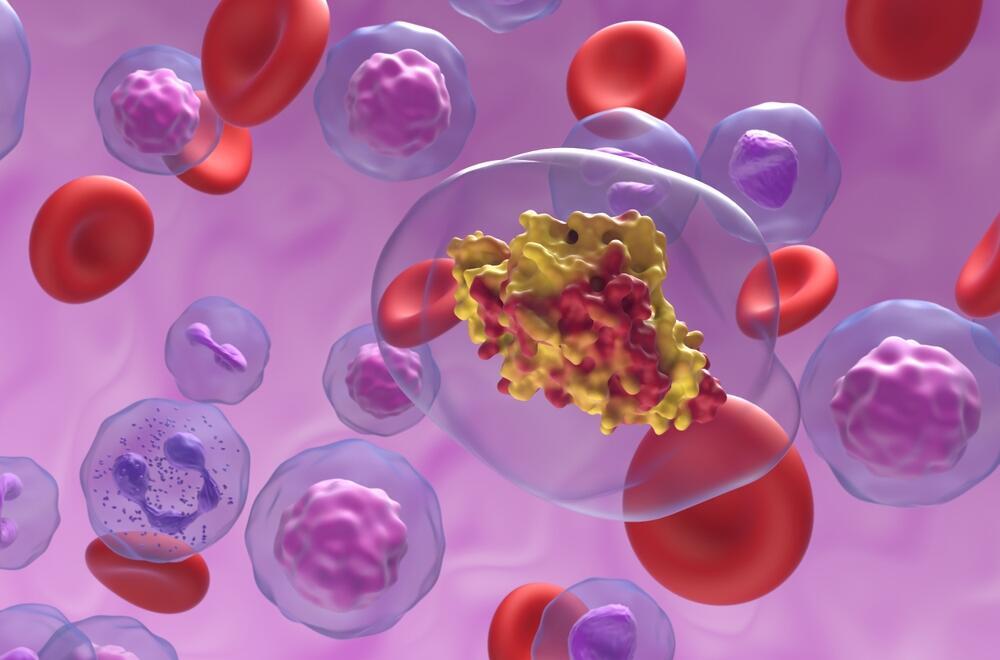Dr. Tomer Yaron-Barir has recently been included on the Forbes' "30 Under 30" list for his contributions to the field of science and research. This recognition is a result of his impactful research on the cells and proteins in the human body which could potentially lead to cancer and various diseases.
Read more:
Yaron-Barir is pleased to be included on such a prestigious list. "First of all, I am happy that there is Israeli representation on the list, especially these days. However, it's important to remember that this list is 'the promising youngsters' - i.e., with potential for the future. The motivation and encouragement are very flattering but I know that the main work is still ahead of me, and there are still many years of work. Exploring the human body and the wonders of creation is a great privilege, especially when the goal is simply to help sick people, whether it's cancer or other diseases. I wish myself the privilege of doing this all my life."
From an early age, Yaron-Barir from Tel Aviv knew he wanted to be a researcher. He earned a bachelor's degree in physics and mathematics while still in high school and a master's degree in electrical engineering during his military service.
Despite his background in the computational world, he decided to follow his heart and pursued a doctorate in computational biology to fulfill his lifelong dream of becoming a researcher. He was accepted into a collaborative program at Cornell University and the Sloan Kettering Cancer Research Institute in New York.There he completed his doctorate in five years, with his research being published in the highly regarded scientific journals Nature and Cell.
Yaron-Barir had initially planned to return to Israel and open a lab. However, he realized that just being a researcher wasn't enough for him, and he decided to become a doctor as well. Currently, he is studying medicine in a three-year program at Columbia University in New York, a program specifically designed for students who have completed a PhD.
In reflecting on his achievements and journey, Yaron-Barir quoted Newton. "If I have seen further, it is by standing on the shoulders of giants," he said. He attributes his success to the exceptional mentors in his life, including his parents, his two unique uncles who have guided and advised him at every stage, and his wife, who has always supported him.
Yaron-Barir's research is centered on the communication that occurs within and between various cells in the human body. He explains that the proteins within our cells are responsible for all the processes that take place within our bodies. Mutations in our DNA can lead to the production of defective proteins, which can, in turn, lead to a variety of diseases, including cancer. While a significant portion of computational biology is focused on studying the genome itself, Yaron-Barir and his team are more interested in the subsequent stage - the communication between proteins within a cell, regardless of whether these proteins have mutations.
"The proteins inside the cells need to communicate with each other all the time in order to respond to the constantly changing environment. This world of communication is carried out by a wide variety of chemical reactions and that's what we're researching, how this communication works," he explains. "This is very important because many diseases, especially cancer, are often driven by proteins that have no mutation, but their communication is impaired. Our research allows us to identify critical points in communication that could lead to undesirable processes in the body such as aging, autoimmune diseases and, of course, cancer."
Yaron-Barir's research, which has earned him recognition, is centered on a group of approximately 500 genes. These genes translate into about 500 proteins, known as "kinases," which account for roughly 2% of all the genes in the human genome. These kinases are responsible for one of the most common forms of communication in a cell - a chemical process known as phosphorylation. Their role within the cell is to phosphorylate other proteins, making them a key component in intracellular communication.
Yaron-Barir explains that these 500 kinases regulate almost all the processes that occur in our body. Each kinase chooses its target, deciding what to activate, what to deactivate, and when. "When this communication system is damaged, bad things happen. For example, if a kinase responsible for cell replication suddenly activates this pathway non-stop, a situation of infinite replication can occur - cancer," he said.
He and his colleagues have created the first complete atlas for all these 500 kinases. This atlas serves as a kind of identity card for each kinase, describing the targets each one has. Combined with artificial intelligence technologies, this atlas helps to draw impressive conclusions from the research: "This system allows us to characterize how communication in a cell changes in different diseases, and thereby develop new potential drugs and treatments as part of personalized medicine. One of the main innovations in this project is that many of the insights we manage to discover cannot be identified when looking only at the static genome. We need the additional dynamic aspect of intracellular communication."
As part of his international collaborations, DYaron-Barir participates in projects that also address other diseases such as lupus, Alzheimer's and endometriosis. Endometriosis is an inflammatory disease of the uterus, affecting millions of women globally and is often challenging to diagnose and treat. They also applied the same principle to the coronavirus and successfully outlined a theoretical pathway for a potential drug treatment. All these achievements and more were noted in Yaron-Barir's profile in Forbes: "The tool helped to expose drug targets for COVID-19 and certain types of cancer, and it is being used to find targets for Alzheimer's, lupus, and endometriosis. Yaron-Barir also founded DeStroke, an AI-based application for early detection of stroke."
So are we on our way to a cure for cancer?
"We are still a long way from finding a cure because cancer is a complex disease and each type behaves differently. However, there's no doubt that our system will enable us to generate a large number of relevant targets. These targets could serve as a foundation for new drugs and treatments, not only for cancer, but also for a wide array of diseases. The traditional challenge in the fields of medicine and biology has been to find the 'gold standard' experiment that provides the definitive answer. Now, in the era of 'big data' and artificial intelligence, the new challenge is how to sift through a vast database of information to extract the answer. So, a cure for cancer? Not yet. But we're definitely making significant strides towards it."
When are you coming back to Israel?
"Our intention is to go back and establish my career as a physician-researcher in Israel. After all, I have a Tunisian mother, and there's only so far you can stretch the bond. Ultimately, Israel has always been and will always be our home."





